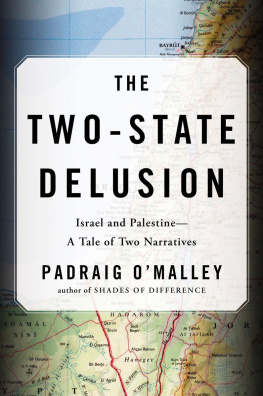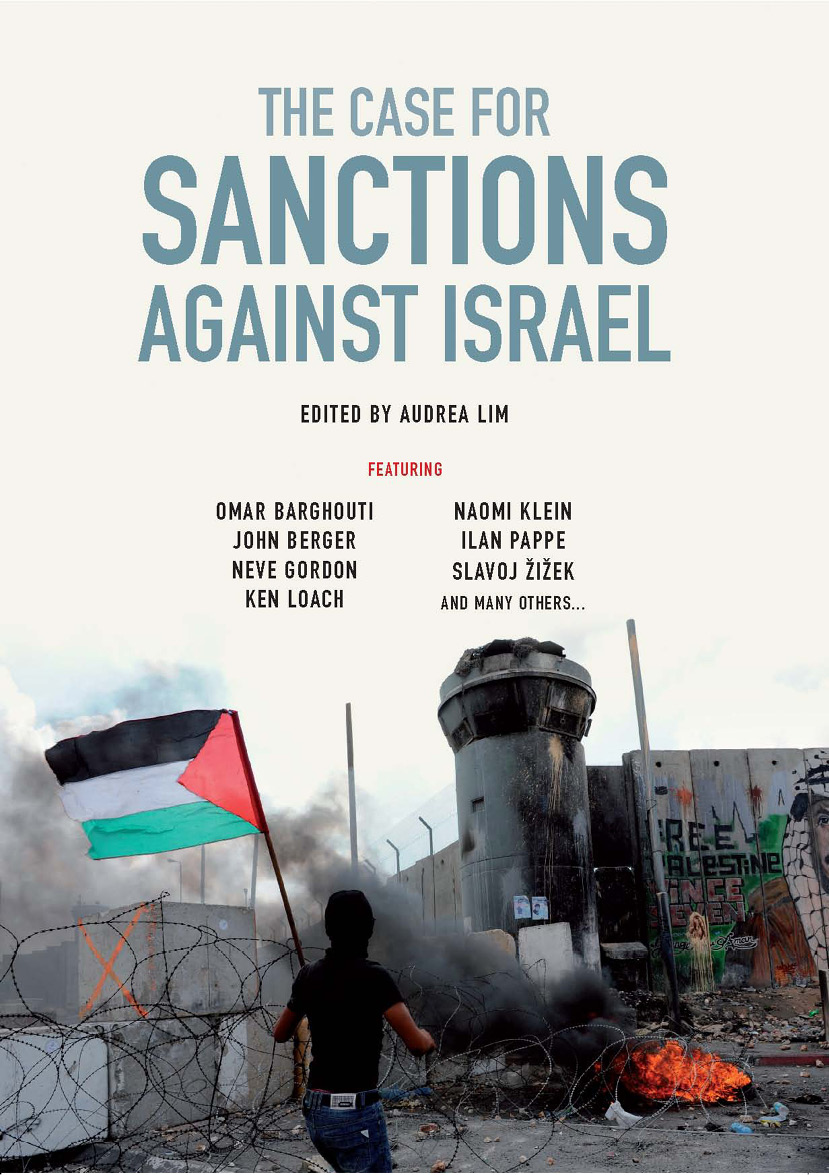
The Case for Sanctions
Against Israel
Edited by Audrea Lim

London New York
First published by Verso 2012
The collection Verso 2012
Individual contributions the contributors
All rights reserved
The moral rights of the authors have been asserted
1 3 5 7 9 10 8 6 4 2
Verso
UK: 6 Meard Street, London W1F 0EG
US: 20 Jay Street, Suite 1010, Brooklyn, NY 11201
www.versobooks.com
Verso is the imprint of New Left Books
eISBN-13: 978-1-84467-803-7
British Library Cataloguing in Publication Data
A catalogue record for this book is available from the British Library
Library of Congress Cataloging-in-Publication Data
A catalog record for this book is available from the Library of Congress
Printed in the US by Maple Vail
CONTENTS
Part I ISRAEL/PALESTINE
FREEDOM IN OUR LIFETIME
Mustafa Barghouthi
I have lived my entire adult life under occupation, with Israelis holding ultimate control over my movement and daily life.
When young Israeli police officers force me to sit on the cold ground and soldiers beat me during a peaceful protest, I smolder. No human being should be compelled to sit on the ground while exercising rights taken for granted throughout the West.
Irrespective of what political settlement is ultimately embraced, Palestinians need a unified strategy for confronting and overcoming Israeli racism, apartheid, and oppression.
Javier Solana, just prior to completing his stint as European Union foreign policy chief, claimed Palestinian moves toward statehood have to be done with time, with calm, in an appropriate moment. But he also added, I dont think today is the moment to talk about that. When, precisely, is a good time for Palestinian freedom? If Israel insists on hewing to antiquated notions of determining the date of another peoples freedom, then it is incumbent on Palestinians to organize ourselves and highlight the moral repugnance of such an outlook.
Palestinians have only two choices before them: either 1) continue to evade the struggle, as some have been trying to do, or 2) summon the collective national resolve to engage in it.
The latter option does not necessarily entail a call to arms. Clearly, Israel has the overwhelming advantage in this respect, in both conventional and unconventional (nuclear) weapons. Just as obviously, neighboring Arab countries have neither the will nor the ability to go the military route. However, the inability to wage war does not automatically mean we have to surrender and eschew other means of struggle.
As powerful as it is militarily, Israel has two major weak points. First, it cannot impose political solutions by force of arms on a people determined to sustain a campaign of resistance. This has been amply demonstrated in two full-scale wars against Lebanon and in the 2009 assault against Gaza. Second, the longer the Palestinians have remained steadfast, and the greater the role the demographic factor has come to play in the conflict, the more clearly Israel has emerged as an apartheid system hostile to peace. If the ethnic cleansing of 1948 and colonialist expansionism describe the circumstances surrounding the birth of the Israeli state, the recent bills regarding the declaration of allegiance to a Jewish state and prohibiting the Palestinian commemoration of the Nakba more explicitly underscore its essentially racist character.
Ironically, just as Israel has reached the peak in its drive to fragment the Palestinian peoplewith geographical divides between those in Israel and those abroad, between Jerusalem and the West Bank, between the West Bank and Gaza, and between one governorate and the next in the West Bank, by means of ring roads, walls and barriersPalestinians have become reunified in their hardship and in the challenges that confront them. Regardless of whether or not they bear Israeli citizenship, or whether they are residents of Jerusalem, the West Bank, or Gaza, they all share the plight of being victims of Israels systematic discrimination and apartheid order.
If the only alternative to evading the struggle is to engage in it in order to resolve it, we must affirm that our national liberation movement is still alive. We must affirm, secondly, that political and diplomatic action is a fundamental part of managing the conflict, as opposed to an alternative to our struggle to resolve it. In fact, we must elevate it to our primary means for exposing the true nature of Israel, isolating it politically, and pressing for international sanctions against it.
In this context, we must caution against the plan of building state institutions under the occupation. An administration whose security services would be consuming 35 percent of the public budgetthat would be constantly pressured to act as the occupations policeman while furthering Benjamin Netanyahus scheme for economic normalization as a substitute for a political solutionis clearly an entity geared to promoting the acclimatization to the status quo, not change.
The building of Palestinian governing institutions and promotion of genuine economic development must occur within the framework of a philosophy of resistance development. Such a philosophy is founded on the dual principles of 1) supporting the peoples power to withstand the hardships of occupation, and 2) reducing dependency on foreign funding and foreign aid. The strategic aim of the Palestinian struggle, under this philosophy, must be to make the costs of the Israeli occupation and its apartheid system so great as to be unsustainable.
If we agree on this course for conducting the struggle, then the next step is to adopt a unified national strategy founded upon the four following pillars.
1. RESISTANCE
In the face of European and American inaction, it is crucial that we continue to revive our culture of collective activism by vigorously and nonviolently resisting Israels domination over us. These are actions that every man, woman, and child can take.
Through decades of occupation and dispossession, 90 percent of the Palestinian struggle has been nonviolent, with the vast majority of Palestinians supporting this method of struggle. Today growing numbers of Palestinians are participating in organized nonviolent resistance.
Models for this type of resistance already exist. Of particular note is the brave and persistent campaign against the separation or apartheid wall, which has spread across several towns and villages. The campaign has become increasingly adamant regardless of the high price people have to pay, including the killing of twenty Palestinian peaceful activists by the Israeli army. The resistance by the people of East Jerusalem, including in Silwan and Sheikh Jarrah, against Israeli home demolitions and the drive to Judaize the city presents another heroic model.
This strategy must retain its peaceful, grassroots character. If it does, it will revive the culture of collective activism among all sectors of the Palestinian people. This will keep the struggle from becoming the preserve or monopoly of small cliques, and will promote its growth and momentum.
President Barack Obama, perhaps unwittingly, encouraged this effort when he called for Palestinian nonviolence in his 2009 Cairo speech. Palestinians, he said, must abandon violence For centuries, black people in America suffered the humiliation of segregation. But it was not violence that won full and equal rights. It was a peaceful and determined insistence upon the ideals at the center of Americas founding.
Next page

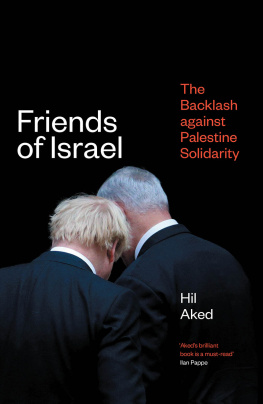
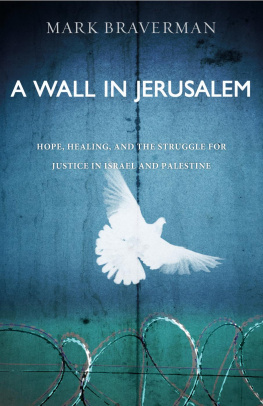
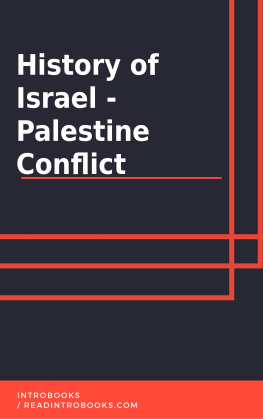
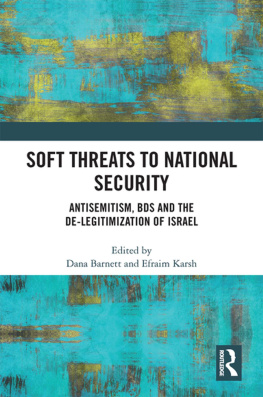
![Neve Gordon [Unknown] - Israel’s Occupation](/uploads/posts/book/114467/thumbs/neve-gordon-unknown-israel-s-occupation.jpg)
